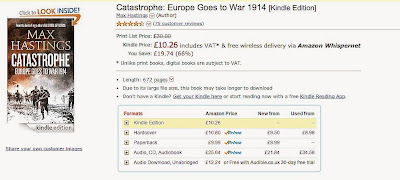| From E-Learning V |
Fig.1. The writer's path ...
The eight week Massive Open Online Course (MOOC) I have just completed 'Start Writing Fiction', with the OU, through FutureLearn merits, like all learning experiences, a period of reflection. How do you look through posts across some 80-100 'threads' with anything from 143 posts (final thread, final week) to over 7,500 posts (fourth thread, first week) ? You have to filter, but these filters are dependent on your participation throughout because the key filters are: 'my comments' and 'following'. These in turn, isolate from a massive thread, the comments you have left, starting a thread to the main discussion or commenting on points made by others. While 'following' picks out those, all of them, whose thoughts and contributions you have enjoyed. You can also pick out 'most liked' - though with likes ranging from 0-4 with 1 like the median, this sift hasn't anything to offer. And you can prioritise 'Activity' i.e. select in reverse order across all posts in an activity those that are most recent.
Thus armed, if you can give it the time, you can work back over the battlefield of minds that has been this last two months; it feels like a 60 degree credits 7-8 month slog packed into a very, very long weekend - it has been that intense (I've let it be so).
Whilst the activities could be done in three hours a week at a fast jog, what takes far longer is a) writing a piece for peer review - 300, 500 and 1000 words were the lengths of submission and b) reading, replying, following and learning from the mass off comments in what are sometimes huge discussion threads with thousands of responses where some of have skipped through the entire 8 weeks course in a few weeks, and others, like climbing onto a moving walkway, are still, just joining.
I can write 1,500 words in an hour. However, 500 from a day of writing, takes ... all day. And it is generally this 500 which is worthy of keeping and could lead to publication. I have learnt the value of reviewing the work of others - all standards (I've been at all standards and can migrate with ease between them). I am reading fiction strategically -I did this with efforts to write TV series and Film scripts (I have a writer/director credit for a short film on Channel 4). It is so useful, as you get a feel for the genre you are writing, to read some of the very best in that genre. It makes sense really. How have other authors successfully tackled time-travel, war, fairies ... horror, romance or sex. And then writing itself. Setting time aside, focusing on that for hours uninterrupted to give you creative side a chance to come out. And then, from that, edit ruthless to those ideas, phrases, descriptions and characters that meet a set of criteria. It's tough. If it wasn't everyone would be a published author.
I may forget to take my phone with me, but when I go anywhere I have an A6 size notebook and pen. Like Louis de Bernieres I take a bath and use this time to read fiction! No iPad. Fewer showers. Currently reading 'The Time Traveller's Wife' and 'Never Ending Story'.
When I get up, very early, I flick over two hourglasses: one is 30 minutes, the other an hour. I like the 'reward' of getting 30 minutes in. I may forget where time is going after an hour or so. 2,000 words a day ought to be about right. Less happens. More happens. Then the rest of the day takes over - often until the early hours of the following morning. I read over a few pages before I go to sleep and sometimes the Muse rewards me in the early hours ... or torments, or deserts me.
